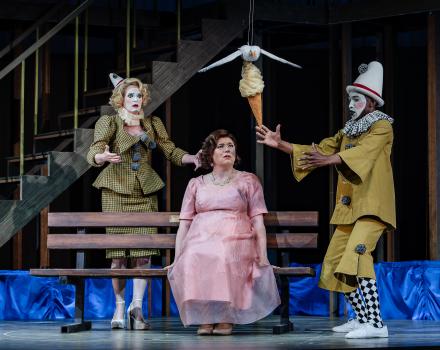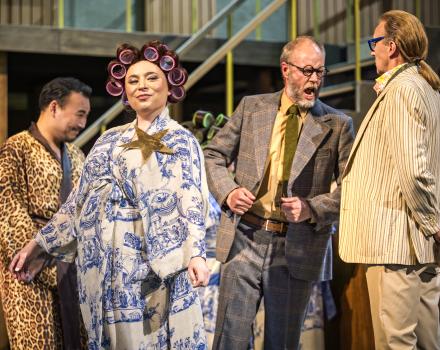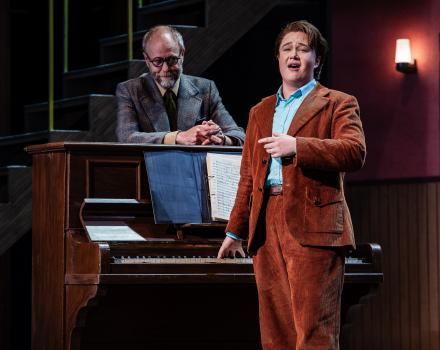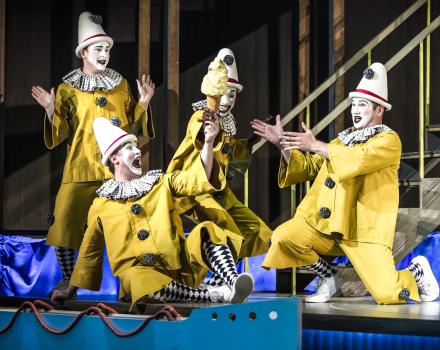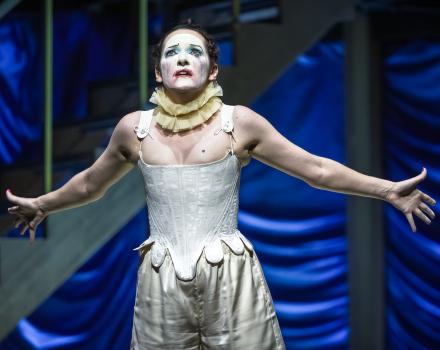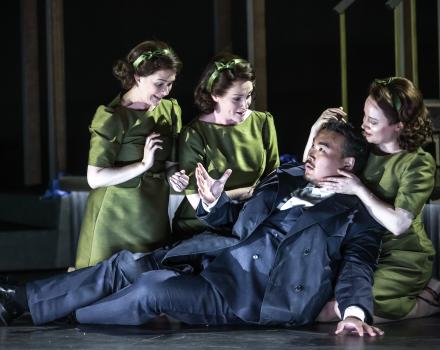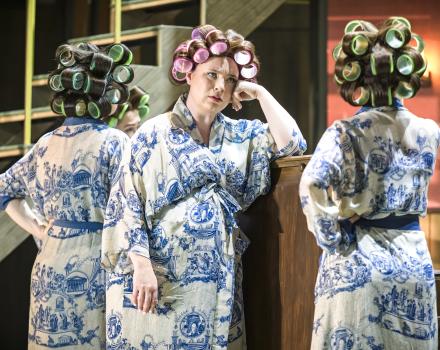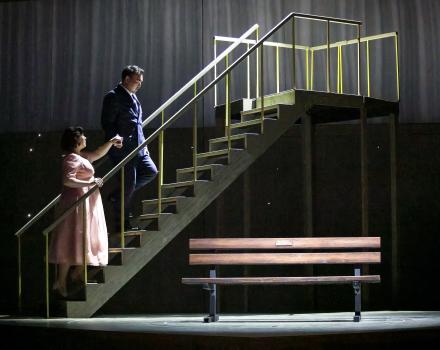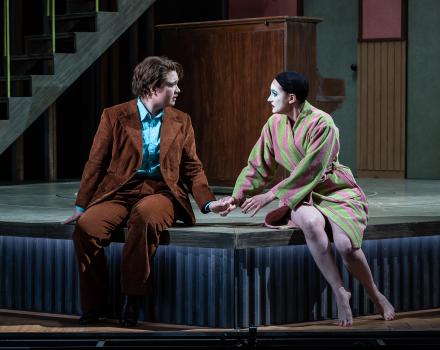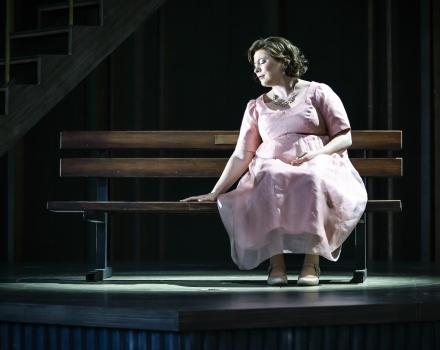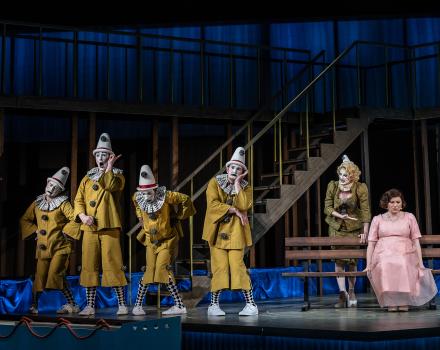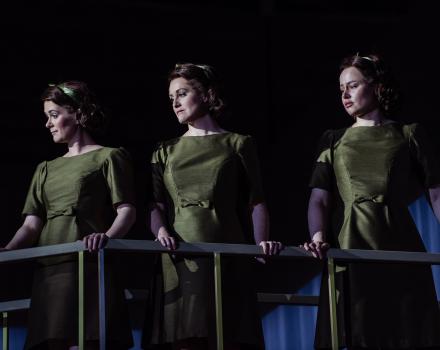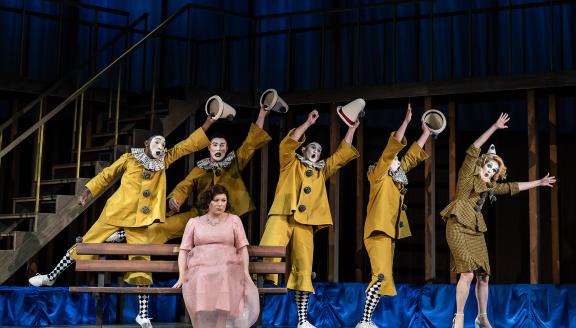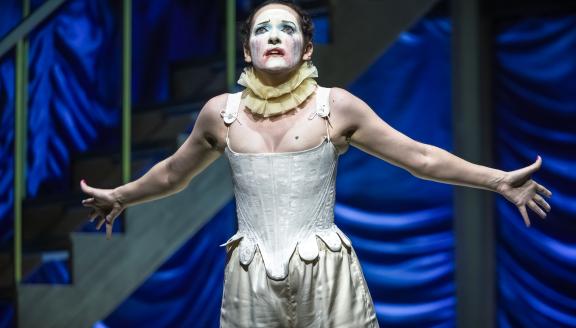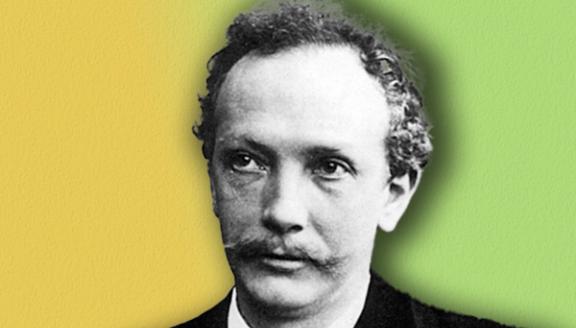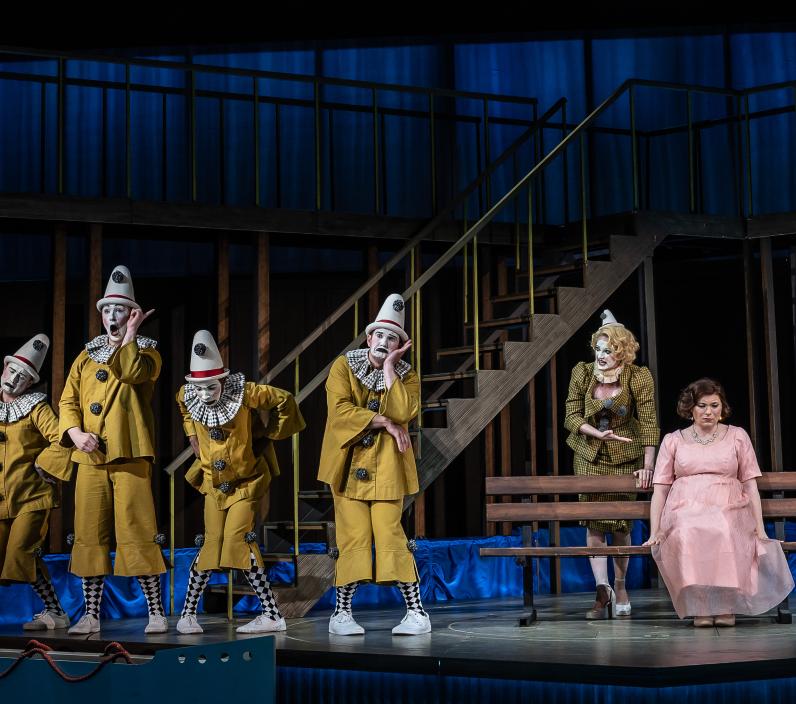
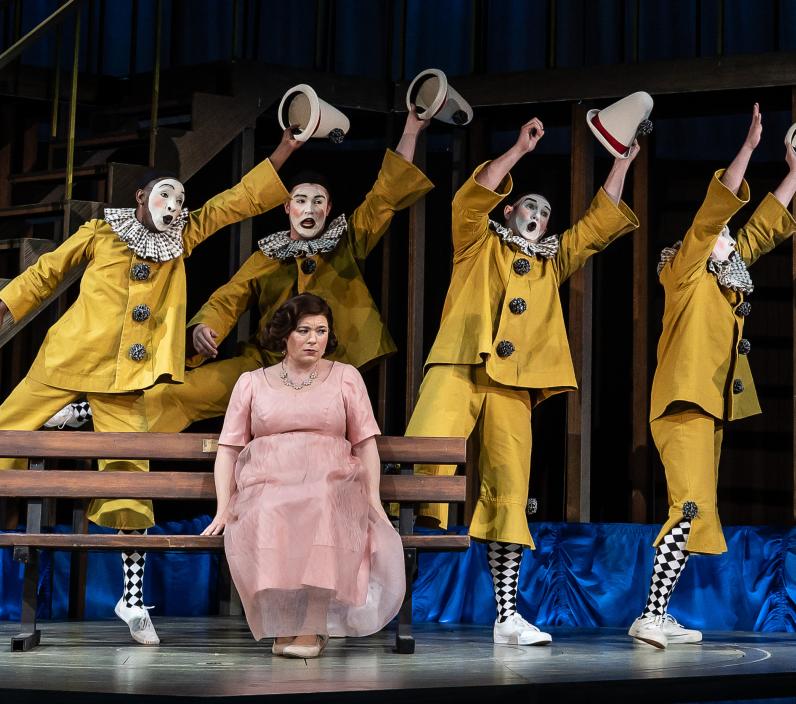
An opera of two halves? A comedy of two halves? Ariadne auf Naxos is both at once and centres around the proposal of ‘the richest man in Vienna’ to commission two entertainments, one from a serious opera composer and one from a troupe of comedians. When he discovers that sitting through both separately would delay the firework display he has planned, he gives orders for the two shows to be performed simultaneously on the same stage. The earnest young Composer is horrified while the pragmatic Zerbinetta is happy to give it a go. As a result, the story of Ariadne, abandoned by Theseus on the island of Naxos and despairing of her lost love, is interrupted repeatedly by the comedians, keen to help and to advise her that the best way to cure a broken heart is to find another lover.
Ariadne auf Naxos is the fruit of the successful creative partnership between Richard Strauss and librettist Hugo von Hofmannsthal who came up with this eccentric idea after quite a few rewrites. Part of the unique flavour of this, the second version, derives from Strauss's brilliant juxtaposition of low comedy and high tragedy. In the prologue, he is at home depicting the quarrels and chaos of backstage theatrical life. In the opera, he slips easily from the heroic style in which Ariadne's part is composed to the buffooning of the commedia dell'arte characters. The combination strikes at the heart of what music and drama mean with a lightness of touch and sumptuous music. The creative team of director Bruno Ravella and conductor Mark Wigglesworth lead an excellent cast in the 2023 Garsington Opera production, which was acclaimed by audiences and critics alike.
CAST
|
Prima Donna / Ariadne
|
Natalya Romaniw
|
|---|---|
|
The Tenor / Bacchus
|
Young Woo Kim
|
|
Zerbinetta
|
Jennifer France
|
|
The Composer
|
Polly Leech
|
|
Music Master
|
William Dazeley
|
|
Dancing Master
|
John Graham-Hall
|
|
Harlequin
|
Marcus Farnsworth
|
|
Brighella
|
Innocent Masuku
|
|
Truffaldino
|
Ossian Huskinson
|
|
Scaramuccio
|
Richard Pinkstone
|
|
Naiad
|
Claire Lees
|
|
Dryad
|
Siân Griffiths
|
|
Echo
|
Harriet Eyley
|
|
Major-Domo
|
Walter van Dyk
|
|
A lackey
|
Daniel Vening
|
|
The Border Guard
|
Zahid Siddiqui
|
|
A wigmaker
|
Jonathan Eyers
|
|
Orchestra
|
Philharmonia Orchestra
|
| ... | |
|
Music
|
Richard Strauss
|
|---|---|
|
Text
|
Hugo von Hofmannsthal
|
|
Conductor
|
Mark Wigglesworth
|
|
Director
|
Bruno Ravella
|
|
Set designer
|
Giles Cadle
|
|
Lighting
|
Malcolm Rippeth
|
|
Choreographer
|
Carmine De Amicis
|
| ... | |
Video
Story
Prologue
A wealthy businessman has commissioned an entertainment for his dinner guests with a grand firework display afterwards.
The Music Master complains to the Major-Domo that his pupil’s new opera, Ariadne auf Naxos, is to be followed by an Italian comedy, Zerbinetta and her Four Lovers. The Major-Domo replies that his master has paid for the entertainment and that is what he wants.
The Composer is unaware that his opera will be followed by a comedy. As the two different companies assemble and begin to prepare for performance, they each become aware of the other. The Composer is made to feel distinctly unwanted, and when he discovers that Zerbinetta’s troupe will appear immediately after Ariadne he protests furiously. The Prima Donna who is to sing Ariadne also objects strongly to Zerbinetta’s presence.
The Major-Domo returns to bring news of a last-minute change of plan – so that the fireworks can start punctually, his master has ordered that the opera and the comedy should be performed simultaneously. The operatic artists are horrified but the comedians rise to the challenge. Zerbinetta charms the Composer into accepting a compromise and outlines a plan for the combined entertainment to her companions. It is too late for the Composer to change his mind – the performance is about to begin.
The Opera
In the Greek myth upon which the opera is based, Ariadne is the daughter of King Minos of Crete. Her half-brother, the Minotaur, is a monstrous half-man, half-bull and has been shut into a labyrinth where he lives on human sacrifice. Theseus, destined to be sacrificed, manages to find his way into and out of the labyrinth with Ariadne’s help, and kills the Minotaur. She falls in love with Theseus, who offers to take her away with him but abandons her on the island of Naxos.
As the entertainment starts, three girls are observing and commenting on Ariadne, soon joined by the Italian comedians. Ariadne, indifferent to a song from Harlequin, can think only of her lost happiness and longs for death and eternal rest.
Zerbinetta and her companions point out the contrast of Ariadne’s misery with her youth and beauty. Attempting a woman-to-woman approach, Zerbinetta says that all women are treated badly by men and that the secret of happiness for a woman is to enjoy the freedom to love many times. As her next love, Zerbinetta chooses Harlequin.
The girls describe the approach of Bacchus, god of wine and fertility, who has just escaped from the clutches of the enchantress Circe. He thinks that Ariadne must also be an enchantress, while she thinks he is the messenger of death. They embrace passionately, each finding in the other the seeds for a new beginning.
Gallery
